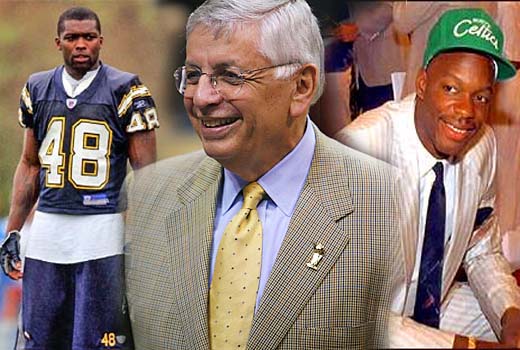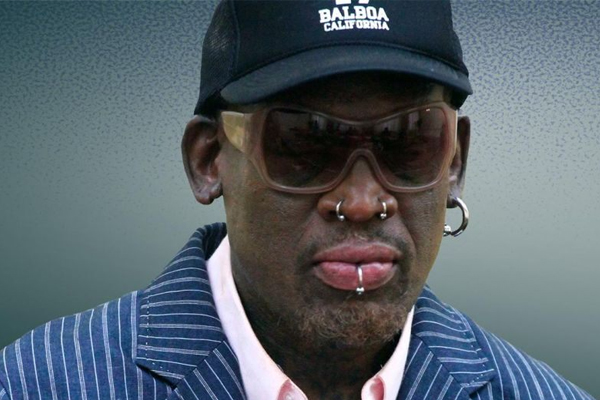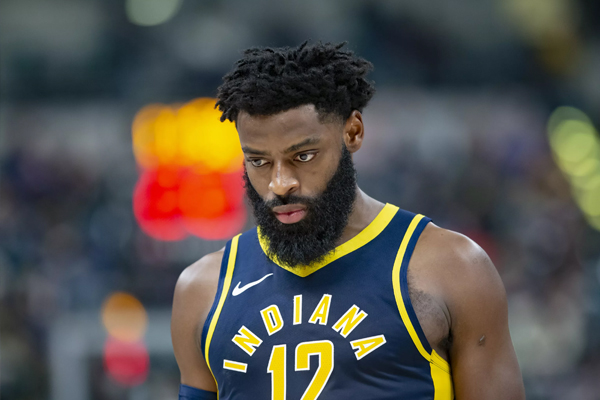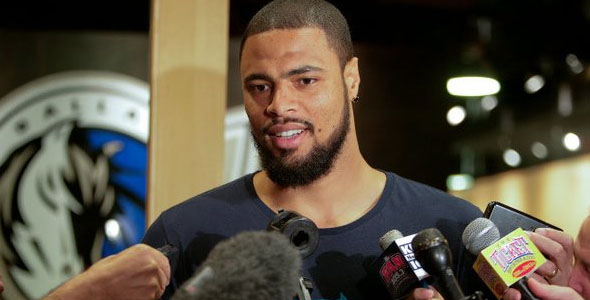
July 5th, 2008 – Dr. Browntorious
It is with a heavy heart that once again we have to read about a pro-athlete whose life went spiraling downwards due to his off-the-field behavior, eventually ending in his early demise. Terrence Kiel, the former San Diego Chargers safety died yesterday in a car accident on his way home from a 4th of July party at a friends place. It is yet to be determined if alcohol or drugs were a factor. Kiel was a major prospect drafted in 2003 and each year his off-the-field behavior deteriorated until he was finally released by the Chargers in 2007. The final straw that broke the camel’s back was when Kiel was caught sending quantities of codeine laced cough syrups to Houston to be used in a beverage referred to on the street as “Purple Drank”.
At some point in time every NBA basketball analyst has given NBA Commissioner David Stern a hard time about some new rule or restriction he has imposed on players that goes above and beyond their individual player contract rules with their team. One of the more recent that comes to mind is the NBA dress code, when Stern turned the league upside down by requiring that every NBA player must wear more formal clothing to and from games, and any time they are sitting on the sidelines while on the injured or inactive list. You’ll remember when Ben Wallace was traded to the Bulls and had to comply with a “no headband” rule. Sure that was a team rule and not one Stern implemented, but Stern upheld the team rule during the player appeals. Over the last couple of years David Stern has become notorious at coming down hard and swift on players who abuse drugs, alcohol, or have other off-the-court behavioral issues. He has also granted Stu Jackson, NBA Senior VP of Basketball Operations a pretty big stick when it comes to curbing player’s on-court behavioral issues.
Why does Stern impose these sorts of rules? Most players and analysts assume that Stern is looking to improve the tarnished image of the NBA with Corporate America for sponsorship motives. This may be true in some respects but I think Stern has a separate motivation. He cares. Could it be that David Stern cares not only about the league but about the players who comprise it? David Stern may in some strange way be acting like the big brother or father figure to all the players in the league as a whole.
While Stern is firm with this penalties imposed, he is also a man that continually reaches out to troubled players to get them help and assistance. He is also a Commissioner who on countless occasions has reinstated players that have proven to have rehabilitated after being suspended indefinitely due to one reason or another. The most recent example is probably the reinstatement of Chris “The Birdman” Anderson of the New Orleans Hornets after he was banned for failure to comply with the substance abuse policy. The fact remains that people make mistakes and Stern clearly believes in rehabilitation over punishment and permanent exile. There are cases however, where this philosophy has not had a happy ending. Vin Baker for example, had constant struggles with alcohol abuse. Stern gave Baker many opportunities to re-enter the league, each time failing to make a successful comeback after slipping back into his old drinking habits.
A lot of us on the outside looking in probably wonder how a professional athlete, who seemingly has everything, can fall victim to these substance abuse issues. Often what we don’t see is the enormous pressure that accompanies the fame and riches. Depending on the player’s upbringing and background he may not have the tools necessary to deal with the pressure appropriately. Many turn to drugs and alcohol. There is no sadder example of this then former #2 NBA draft pick in 1986 of the Boston Celtics, Len Bias. Many considered Bias to be as athletic and explosive as Michael Jordan coming out of Maryland as the ACC player of the year, and averaging 22 points per game. Just 48 hours after being drafted by the Celtics, Bias struggled with the pressure mounting on him of being picked by the Championship Celtics and having to live up to all of the hype surrounding him. He decided to blow off a little steam with a couple of buddies by snorting cocaine. Before the night was over Bias had died from a cardiac arrhythmia and overdose brought on by the cocaine.
Although many players balk at the myriad of rules placed upon them when they enter the league and sign contracts with their respective teams, what many of the younger kids being drafted don’t realize is these rules are there for their protection and well-being. If the NBA and the franchises truly did not care about the well-being of the athletes would the Chicago Bulls have paid out the remainder of Jay Williams’ contract following his career ending motorcycle accident in June 2003? Williams was specifically restricted from riding motorcycles in his contract, yet that didn’t stop him from jumping on for a “quick spin” at dangerously high speeds without even a helmet as protection. The Bulls could have refused to pay Williams (since he violated his contract by riding a motorcycle), but instead they offered a buyout worth approximately $3 million. Following his accident Williams legs were left mangled to the point that most doctors said he would never play basketball again, and some even said he would never walk properly again. Williams did prove most of the medical establishment wrong by rehabilitating enough to try out for the New Jersey Nets in 2006, unsuccessfully however but he did play for a short stint with the Austin Toro’s in the D-League that season.
At the end of the day I believe that the majority of the off-court rules that NBA Commissioner David Stern has imposed may be inconvenient and annoying for most players, he truly does to show the “NBA Cares”. Not just about the communities as we have come to recognize this slogan, but for the internal parts of the organization as well. And as we read another devastating story today about NFL player Terrence Kiel, let’s hope that these NBA rules that we all consider a nuisance can prevent even at least one instance of the Terrence Kiel affect for NBA players.
R.I.P. Terrence Kiel





















